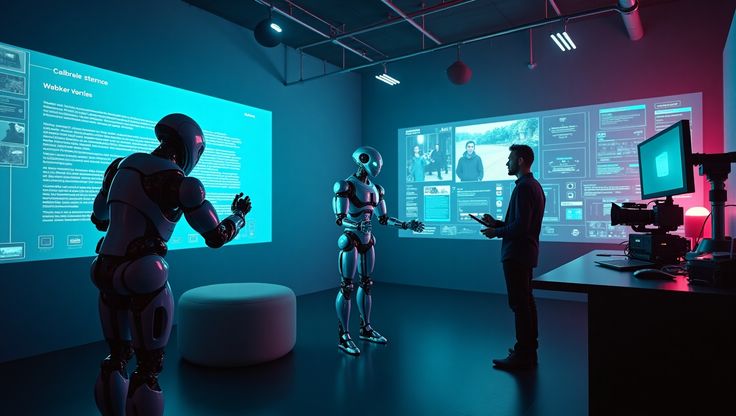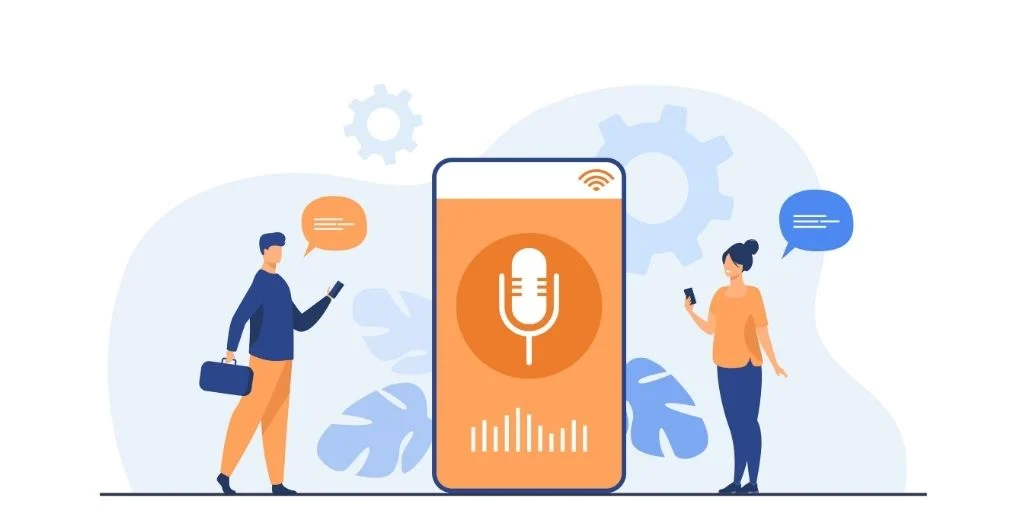In the age of artificial intelligence, storytelling is being redefined. From Hollywood screenplays to global marketing campaigns, AI has moved beyond automation it’s now co-authoring the human experience. Yet amid the rise of machine-generated narratives, one question persists: can algorithms truly understand emotion, or do they merely simulate it?
This is the new frontier where human imagination meets computational precision. Writers, filmmakers, and brands are discovering that AI isn’t replacing creativity it’s expanding it. The partnership between human intuition and machine intelligence is giving birth to an entirely new genre of storytelling one shaped by empathy, ethics, and exponential possibility.

The Evolution of Storytelling: From Cave Walls to Code
Storytelling has always evolved alongside technology. The printing press democratized ideas, cinema brought motion to imagination, and the internet turned every user into a publisher. AI is the next leap in this lineage.
Generative AI systems such as OpenAI’s GPT models or Google’s Gemini—are now capable of crafting scripts, developing characters, and even composing music that resonates emotionally. Netflix reportedly uses AI to predict narrative arcs that attract audiences, while tools like Sudowrite and Jasper assist authors with plot development and tone adjustments.
A 2024 PwC report found that 65% of creative professionals now use AI tools in some part of their workflow, primarily for ideation and editing. The result isn’t the erosion of originality it’s an amplification of it.
“AI is not a replacement for storytellers. It’s a creative mirror,” says Nina Schick, an AI ethicist and author of Deepfakes: The Coming Infocalypse. “It reflects our narratives back to us, filtered through data and pattern recognition.”
The Human Element: Emotion, Empathy, and Meaning
At its core, storytelling is a human art form anchored in emotion, empathy, and moral context. Machines can learn structure and style, but understanding why a story moves us requires something beyond data: consciousness.
AI models can simulate emotional depth by analyzing millions of examples, but human storytellers bring cultural nuance, trauma, and love elements that resist quantification. For instance, while an AI might generate a technically perfect love story, it can’t replicate the heartbreak behind a line like “I remember you in every silence.”
This tension between authenticity and automation defines modern storytelling. As brands and creators turn to AI, the most successful projects are those that fuse human insight with algorithmic efficiency what many call “hybrid creativity.”
A prime example is Coca-Cola’s “Create Real Magic” campaign (2023), which allowed users to co-create visuals using OpenAI’s DALL·E and ChatGPT. The campaign reached millions, proving that when audiences participate in AI-driven narratives, they feel ownership in the story.
Machine Precision: Data-Driven Narratives and Predictive Plotting
AI’s true power in storytelling lies in data. By analyzing audience reactions, consumption trends, and emotional cues, AI can predict what types of stories will succeed.
Platforms like Wattpad use AI to identify emerging authors and storylines likely to go viral. Similarly, Netflix’s content algorithm doesn’t just recommend shows it helps inform which ones to produce based on engagement patterns.
This data-driven storytelling is transforming entertainment economics. Studios can minimize risk by understanding which archetypes, pacing styles, or character dynamics resonate most. The 2024 Future of Media report by Deloitte noted that AI-assisted pre-production reduced creative development time by 40% for major streaming studios.
Yet there’s a risk in over-optimization. Stories designed purely for engagement metrics can lose the raw unpredictability that makes them memorable. “The danger,” warns screenwriter John August (Big Fish), “is when we start designing stories for algorithms instead of people.”
The Ethical Frontier: Ownership, Bias, and the Soul of Creation
As AI becomes a co-author, legal and ethical questions multiply. Who owns a story generated by an algorithm trained on thousands of copyrighted works? What happens when an AI unintentionally reproduces bias embedded in its data?
In 2025, global policymakers are still grappling with these questions. The European Union’s AI Act requires transparency when AI is used in creative production, while the U.S. Copyright Office has ruled that only “human-authored” works qualify for protection.
Bias remains another challenge. Because AI learns from existing datasets, it often reproduces cultural stereotypes. For instance, gender roles and racial tropes can inadvertently reappear in machine-written narratives. This underscores the need for human oversight not just to edit stories, but to preserve ethical storytelling itself.
“AI can enhance storytelling, but it cannot replace the storyteller’s conscience,” notes Dr. Safiya Noble, author of Algorithms of Oppression.
The Future of Storytelling: Collaboration, Not Competition
Looking ahead, the fusion of human creativity and machine precision will define the next decade of content creation. Rather than fearing automation, the world’s best storytellers are learning to co-create with it.
AI will become a creative partner a tool for brainstorming, visualization, and multilingual adaptation. Imagine a novelist instantly localizing a story for 10 languages, or a filmmaker using AI to visualize a scene before filming begins.
The next evolution of storytelling isn’t about machine dominance; it’s about expanding human reach. When emotion meets computation, the result isn’t artificial, it’s amplified.
Actionable Takeaways
- Embrace AI as a creative collaborator, not a replacement. Use it for ideation, structure, and research but let emotion remain human.
- Prioritize ethical transparency when using AI-generated content; disclose usage and protect originality.
- Balance data with intuition use analytics to guide, not dictate, creative choices.
- Develop hybrid creative teams blending technologists, writers, and ethicists.
- Stay adaptive the storytellers who evolve with technology will lead the next era of global narratives.



